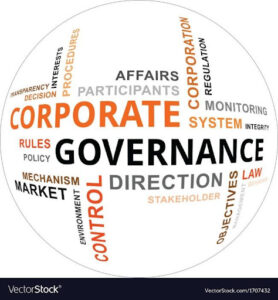Corporate Governance
Course Overview

In November 2004, Enron Corporation went bankrupt, a scandal that has put energy companies in the limelight since then and forced the hands of all energy companies to implement a Corporate Governance structure to make sure the shareholders’ interests are safely kept.
However, Good Corporate Governance should not be motivated by fear of punishment or hope for reward. Good Governance is about delineating the roles in the Board of Directors, organize the work of executives and make sure all endeavors fall within a framework of good values and ethics.
Its benefits are illimitable: Corporate Social Responsibility and Sustainable Development are slowly becoming the next multi-trillion attractions of investors and international trust funds.
Goal of Course:
This workshop examines current best practice in all aspects of corporate governance: from the roles, responsibilities and duties of the directors all the way through to the best implementation of governance in daily activities in the workplace.
In terms of content, this workshop will:
- Highlight the main issues of corporate governance;
- Discuss case studies that have changed how we look at business;
- Cement the key principles of good corporate governance and ethics in the participants’ heads;
- Offer the tools as per international best practices to do the ‘inside job’ and setup a good governance framework.
From the vice presidents, all the way to line managers and team leaders should attend this workshop to foster a collaborative culture throughout the implementation plan that participants will craft by the end of the final day.
Duration:
3 Days
Language:
English/Arabic
Training Objectives
- What is corporate governance and how it evolved
- The codes of conduct for good corporate governance
- The important of Corporate Governance in the Energy sector
- The international, European and OPEC experiences with Corporate Governance
- The role of the board of directors and its dynamics
- The divide of directors and executives
- The difference between owning the company and controlling it
- Stakeholder mapping and management
- Corporate Governance structure: vision, mission and guiding values
- Corporate Social Responsibility and Sustainable Development
Module Outline
Day 1: Intro, Ethics & Industry
Module 1: What is Interesting about corporate governance
- The definition of corporate governance
- The business case for Corporate governance and the history of scandals
- What are the principle issues of corporate governance?
- Putting corporate governance into its CSR/Sustainable Development context
Case Study: The Enron Scandal
Module 2: The Development of a Corporate Governance Consciousness: Codes of Conduct
- The growth of corporate governance consciousness
- How the British perceive Corporate governance thinking
- The European Ethical Principles for good governance
- Is there a worldwide convergence of corporate governance principles?
Module 3: What is so special about corporate governance in the Energy Sector?
- The role of energy companies in resource and energy allocation
- The claimed special circumstances
- Opaqueness: information asymmetries
- OPEC and the regulatory environment
- International Best practices for the energy sector
Case Study: The Corporate Governance Model of Total
Day 2: Influencing the Executive Management Mindset
Module 4: The Board of Directors and Its dynamics:
- The board as a watchdog, a strategist, an advisor and a risk manager
- The role of the Chairman: Executive vs independent non-executive directors
- The problem of ‘groupthink’
- Board diversity
- The role of the Company (board) Secretary
Module 5: Shareholders and Stakeholders
- The shareholder dilemma: Owning vs controlling
- Institutional share ownership
- Stakeholders: Harry and the 5 Wives
Exercise: Stakeholder Mapping and Management
Case study (1 of):
- Toyota: the recall;
- Nestle: the problem with Greenpeace over palm oil;
- BP: the oil spill in the Gulf of Mexico
Module 6: Solving the agency problem
- The board of directors and the executive management
- Performance measures and institutional KPIs,
- Governing values and ethical approach to good governance
Game: Nuclear War
Day 3: Corporate Social Responsibility and Sustainable Development
Module 7: The CSR
- Issues related to Labor, Human Rights, Environment and philanthropy
- The benefits of CSR
- Internal and external environments upgraded
Module 8: Sustainable Development
- Sustainable Development as a multi-trillion dollar business
- International Strategies and Emerging Markets
- Corporate Governance in Emerging Market: CSR and SD
Module 9: Good Governance is an inside Job
- FC (part of the world bank) Model for corporate governance
- Corporate Governance Scorecards
- The Journey Starts: Setting up the progression matrices, the requested documentation lists and Information lists
Customized Learning
Leap To Success is offering a variety of learning options to meet current realities and can be adapted to suit your business needs. These options include variants of online, blended and on-site course formats.
Face To Face Learning
Enabling you to have a face to face interactive and engaging learning experiences led by renowned industry experts and thought leaders with extensive practical experience who will employ a variety of interactive learning techniques, including short high-impact videos, case studies, assessments, role plays, in addition to on-going support.
Virtual Learning Labs
Interactive online learning held in real-time using Zoom and are led by international subject matter experts who incorporate case studies, breakout rooms, guided practice, simulations and discussions to maximise your learning experience.
General Methodology
Similar to any L2S training program, this program offers an interactive learning experience in which will allow the delegates to reflect on their learning through an informative, indulging, and fun classroom experience. The design of the training session focuses on the following attributes.
- Concrete Experience: The delegates will learn by doing
- Reflective Observation: Reflecting on the newly experienced skill-set
- Abstract Conceptualization: Developing deeper understanding to the learned concepts
- Active Experimentation: providing the delegates with realistic tools that can be tested in the real life
Sign Up For the Course
